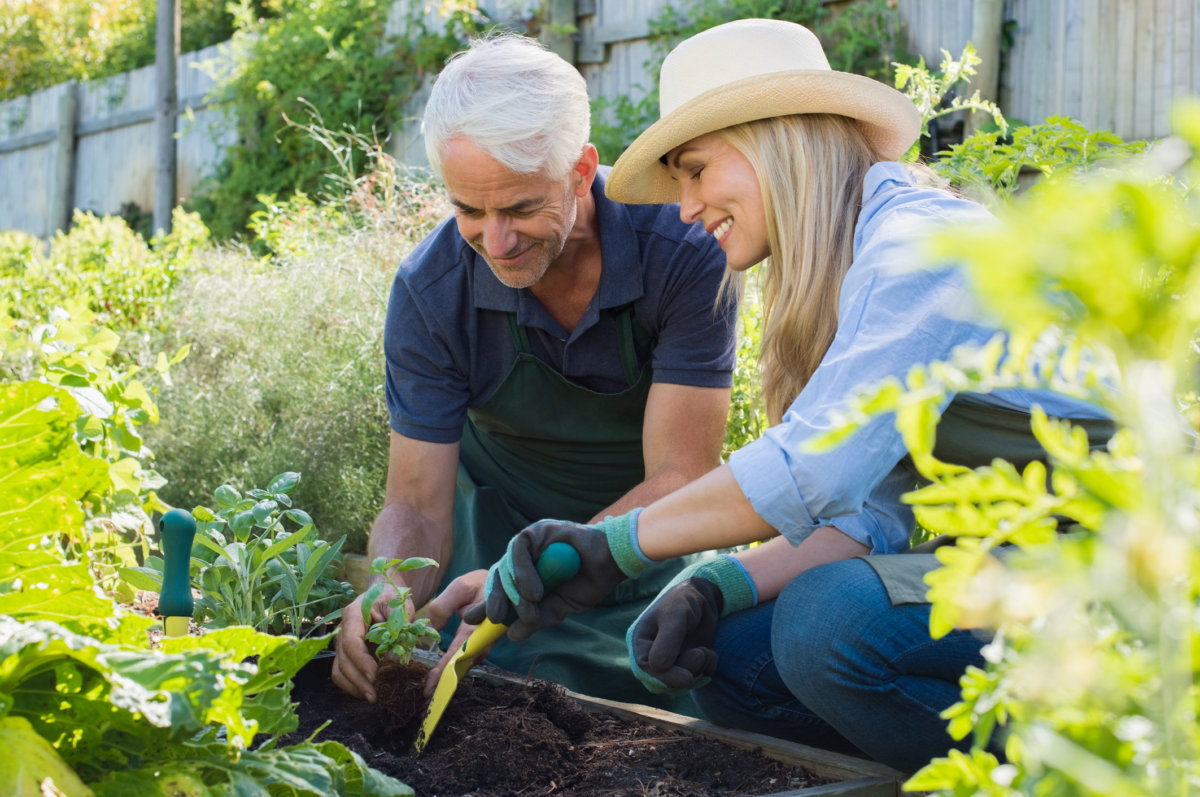
Gardening can be a great way to reduce stress. Here are tips on how to make it more enjoyable.
Many of us have higher stress levels these days. Gardening can be a great way to reduce your stress. Whether your goal is growing your own fruits and vegetables or having an attractive landscape, gardening can relax your body, mind and spirit.
On the other hand, gardening can be a source of stress if you see it as a tedious chore. Here is info on how gardening reduces stress and tips on how to make it more enjoyable.
How gardening reduces stress
Soaking up sunlight
Just getting out in the sunlight can be great for your state of mind. (This is part of why Seasonal Affective Disorder affects some people during winter months when there is less sunlight.)
An article in Forbes lists all these benefits of sunlight: it elevates mood, improves sleep, promotes bone growth, helps strengthen the immune system, lowers blood pressure, may reduce the risk of melanoma and promotes weight loss.
Getting in touch with nature
Being outside among green plants and the great outdoors can be a great antidote to stress. It’s great to get away from Netflix or your computer.
According to Time, being outside in fresh air and green spaces has been found to lower stress, blood pressure and heart rate, while encouraging physical activity and buoying mood and mental health.
If you can get away, camping and hiking are great ways to connect with nature. On the other hand, having a green space right outside your back door gives you a daily connection to nature.
Creating beauty
Your landscape can provide a place for meditation, contemplation and relaxation. Flowers and foliage lend beauty to your life. You can have the satisfaction of creating a haven from stress at your own home.
More enjoyment, less stress
Here are some tips to increase your enjoyment and reduce your stress in your garden.
Make a short “to do” list and stick to it. Don’t try to do everything in one afternoon, evening or weekend. There will always be another weed to pull or another branch to prune. Be realistic about what you can do.
Take care of your body. Before you start gardening, do some simple stretches to warm up your back, shoulders, hips and legs. Warm up before you start doing heavy work. Cool down with a few stretches.
Attack garden chores, such as digging beds, turning compost and cultivating, with the same vigor as weight-lifting, running or swimming. But be mindful about how you are squatting, kneeling, reaching and lifting. Here are some tips on how to garden without hurting your back.
Take periodic breaks to stop and rest. Breathe deeply, stretch and relax during your rest periods.
Pause and take a moment to be aware of your surroundings, or take a stroll around the garden. “The sound of wind and birdsong, the color of leaves and blossoms, fragrances, the taste of herbs, and the texture of the earth will all mindfully absorb your attention,” said Lorna King in Gardener’s Path.
By becoming fully absorbed in the moment-to-moment experience, you’re practicing mindfulness—a proven way of reducing stress.
Carry this mindfulness into your tasks. Repetitive motions such as hoeing, raking, weeding and digging soothe the sympathetic nervous system (SNS) and reduce the “fight or flight” response.
Garden with your children. Teaching your children how to garden can be a great family activity, and it may encourage a lifelong love of gardening in them. Here are some tips on gardening with children.
Resources
In Harmony can help make your landscape a place that brings you joy and beauty. Our services will make it healthier and easier to care for. Contact us for information about landscape design and installation and about natural lawn, tree and shrub care.
More resources:
- Gardening to reduce stress, Iowa State University
- Soil salvation: yes, gardening does relieve stress and make you happier! Gardener’s Path.
- How to use gardening for stress relief, Very Well Mind.
